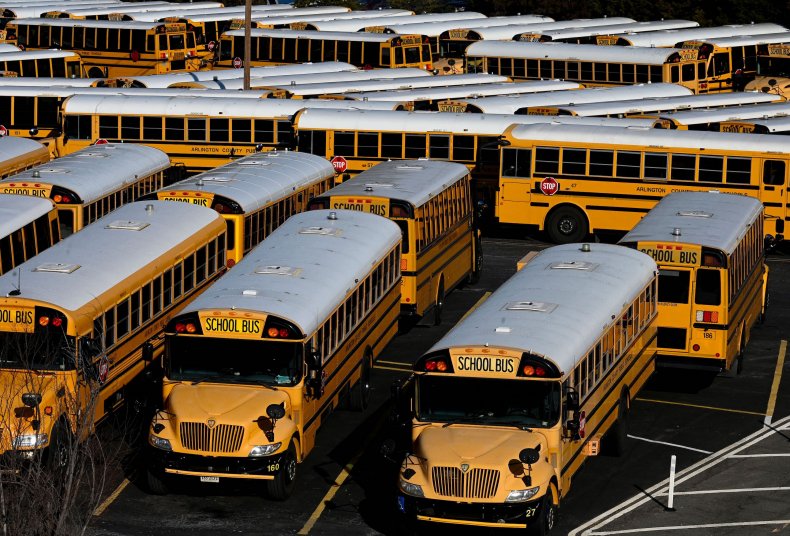As the federal representative for Northwest Oregon and a member of the House Education Committee, I always appreciate and learn from my visits to schools and my conversations with students and educators. So it is deeply concerning that many conservative activists have created a false caricature of the public schools I've known my whole life.
Long before I ran for Congress, I took a career break to raise my kids. During that time I found several ways to get involved in and support public education. Throughout my 15 years as a public school parent, I often saw teachers and staff go above and beyond to cultivate the tremendous potential in their students. But I also saw how a lack of resources limited opportunities for students and teachers. I didn't want to just stand by, so I got busy. I served on committees and volunteered in classrooms and for after-school programs. I advocated for and helped raise more resources for public schools. As a mom, and now as a policymaker, I am committed to our nation's promise of a free, quality public education for all.
To realize that promise, schools must be a place where all students are safe, and feel safe. It was heartbreaking to me when a few school board members in Newberg, a community in the district I represent, decided to ban Pride and Black Lives Matter symbols. The words and actions of adults can have heavy consequences for children, and in this case the school board members sent a clear message to LGBTQ and students of color that they don't belong. It emboldened those who harbor racist and homophobic beliefs. This is part of a dangerous national trend that includes recent book bans.
I was once a concerned and engaged parent, and I value the role of parents in our schools. But when parents show up at school board meetings and threaten school leaders or demonize trans students, that is destructive. When elected school board leaders ban symbols and books that represent the dignity and humanity of LGBTQ people and Black people, or when they minimize or ignore the challenging parts of our history, that is hurtful and harmful.
In Congress I try to find common ground with my colleagues, regardless of their party. But right now the conservative assault on public schools is distracting us from the truth: most of us agree on the principles at the core of public education. Here are four areas of common ground to start a more productive conversation.

First, schools must foster critical thinking. Children are endlessly curious and have a gift for asking big questions. Even our youngest students are capable of thinking independently about the world around them. Our job as adults is to nurture these abilities and be honest, especially when students have big or uncomfortable questions.
Second, decisions about school curricula are made locally—and that's how it should be. The federal government's role is to be the guardian of equity, not to prescribe curricula.
Third, every student should be able to access a free, quality public education, no matter their background, race, gender, zip code, or economic status. That powerful shared vision must guide our laws and actions. Our foundational federal education laws are the hard-won products of the civil rights movement. Federal policies are aimed at providing our public schools the resources they need to close opportunity gaps and serve all students, and ensuring that they do so fairly and equitably.
Finally, history must be taught honestly. We can't change our country's history. But to reach a brighter future we must understand it, confront it, and learn from it. Enslaved African Americans built the U.S. Capitol where I work. At home in Oregon, our land was cultivated by Indigenous people for centuries before white settlers arrived and decimated nations. Schools can and should teach history in a factual way that helps students understand and analyze the world around them—and build a better one.
Students give me hope. As our future leaders, they deserve better than false narratives and harmful rhetoric.
Education will continue to be an important part of our public dialogue for the 2022-23 school year and beyond. We all have a responsibility to make this conversation civil, productive, and honest.
Congresswoman Suzanne Bonamici (OR-01) is Chair of the House Education and Labor Subcommittee on Civil Rights and Human Services. As a public school parent she volunteered in classrooms and for after-school programs and served on the board of the Beaverton Education Foundation. She also volunteered for several years with the Classroom Law Project, a civics education organization that works with students in grades 5-12.
The views expressed in this article are the writer's own.
"Opinion" - Google News
August 19, 2022 at 06:00PM
https://ift.tt/dKsIY1Z
Common Ground in Uncommon Times for Our Schools | Opinion - Newsweek
"Opinion" - Google News
https://ift.tt/8VxoZew
Shoes Man Tutorial
Pos News Update
Meme Update
Korean Entertainment News
Japan News Update
No comments:
Post a Comment